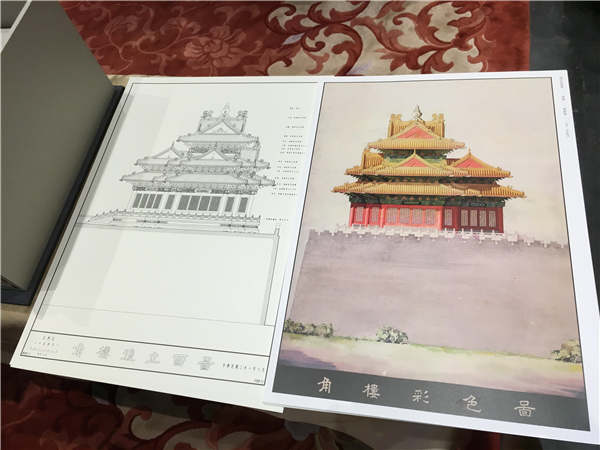 |
|
A new book offers detailed architectural information on Beijing's ancient landmarks such as the Forbidden City. PHOTOS BY WANG KAIHAO/CHINA DAILY |
Beijing's axis ranks among the world's most splendid cityscapes.
It's crowded with ancient architectural marvels, including the Palace Museum (the Forbidden City), the Temple of Heaven and Jingshan Park.
This prompted the Society for the Study of Chinese Architecture, which was active from 1930 to 1946, to launch a four-year survey of these buildings in 1941, in case they were destroyed during the War of Resistance Against Japanese Aggression (1937-45).
Scholars drew about 700 maps and images that were later scattered among different institutions.
These are compiled in the comprehensive book Surveying Pictures of Ancient Architecture on Beijing City's Axis, which the Palace Museum's publishing house released in Chinese on June 2.
The images span the area from the Drum and Bell Towers in the north to Yongdingmen city gate in the south. Some of the structures date as far back as the Ming Dynasty (1368-1644).
Buildings are portrayed in different angles, and records include their dimensions, and construction materials and methods, says editor-in-chief Liu Shuguang, who's also former director of the Chinese Academy of Cultural Heritage.
"The numbers are accurate, and the mapping is exquisite," Liu said at the release.